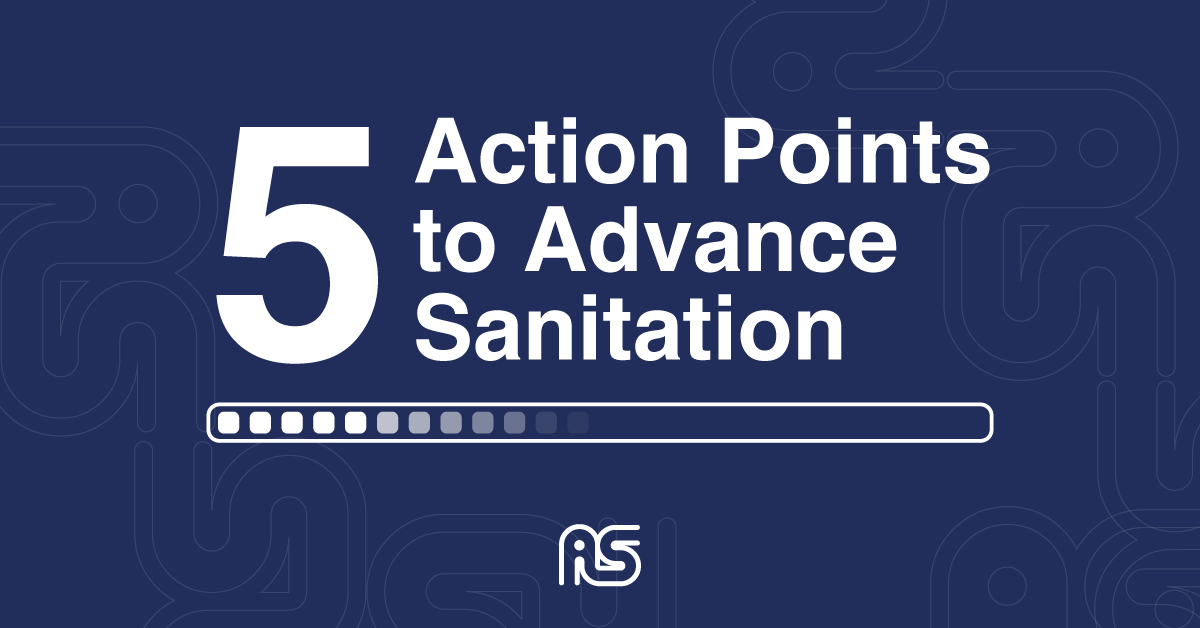Inclusive and sustainable sanitation for all by 2033
IAS outlines five priority action points that can shape the direction of national policy, aligning with the actions proposed in the G20 leaders' declaration
Published in 12 Sep 2024
Written by By the IAS team
Tags:

It cannot be denied that Brazil continues to have enormous inequality in access to drinking water and sanitation, which are human rights enshrined by the United Nations. It can also be seen that the targets set out in the Sanitation Legal Framework are unlikely to be met. This situation brings constant pressure from civil society for effective public policies in sanitation.
Nesta declaração, o IAS traz pontos de ação importantes que podem servir para nortear os rumos da política nacional em direção a uma universalização do saneamento inclusiva e resiliente.
Launched by the Instituto Água e Saneamento - IAS (Water and Sanitation Institute) in June, the “New 2024 Sanitation Chart” describes the current situation in Brazil, identifying the need for future areas to be worked on to provide inclusive and sustainable sanitation for all. It includes a more demanding agenda for 2024, four years after the revised Sanitation Legal Framework was published.
In addition to this survey, presentations and debates on the context of sanitation have been held with different stakeholders, especially civil society organizations, opening up dialogue on priorities for the federal government to improve sanitation.
This entire agenda and mobilization follow the “Call to Action on Strengthening Drinking Water, Sanitation and Hygiene Services,” presented in July at the G20 Development Ministerial Meeting, whose presidency Brazil currently holds.
The Call to Action demands a response and commitment from member countries to take actions such as the political prioritization of sanitation in order to accelerate progress towards Sustainable Development Goal (SDG) 6 by 2030, taking advantage of upcoming opportunities such as the Heads of State Initiative and the 2025 Sector Ministers Meeting; raising funds for planning, programs and infrastructure for drinking water and sanitation; the expansion of international technical cooperation, especially to address rural areas and outskirts of cities; and investments in Water, Sanitation and Hygiene (WASH) services in the health, education and labor sectors ((see more).).
The following points must also be considered:
- The federal government as the body responsible for defining and coordinating the Brazilian sanitation policy, including planning and guidelines for financing programs and actions with federal resources;
- The goals of 99% of the population having drinking water and 90% sewage collection and treatment by 2033;
- The inclusive and sustainable universalization of sanitation, prioritizing people and communities in the most vulnerable situations;
- Social groups that are disproportionately affected by water-related risks and inadequate management of water resources as a result of climate change;
- The importance of demanding a response from the federal government to the G20 Call to Action;
- The fundamental role of civil society in strengthening the democratic processes of listening to people and the participation of society.
Five action points
Based on analyses and discussions by civil society regarding the current sanitation scenario, in line with the strategic actions listed by the G20, we present the following proposals for priority actions:
(1) Strengthen the Inter-Ministerial Committee on Sanitation (CISB), making it more active (with regular meetings, the monitoring of goals and prioritizing investments) and expanding it so that it reflects to a greater extent those who are affected by sanitation inequality in Brazil (indigenous peoples, poor neighborhoods in the outskirts of cities, small municipalities and rural communities);
(2) Implement the instruments of the federal sanitation policy, with emphasis on the review of the National Sanitation Plan (which should have been completed in 2023) and the need to implement the National Rural Sanitation Program;
(3) Integrate and connect sanitation with the climate agenda, highlighting the importance of including sanitation in the Climate and Adaptation Plan; and increasing efforts to deal with emergencies and crises, with the development of the Reference Standard on Emergencies, Contingency and Rationing by Agência Nacional de Águas e Saneamento Básico - ANA (Brazilian National Water and Sanitation Agency), which is essential and feasible;
(4) Guarantee and promote processes of participation and social control and improve official channels of transparency and access to information;
(5) Promote community management of sanitation and social technologies in rural areas, poor neighborhoods in the outskirts of cities and in traditional indigenous areas, with space for innovation, effective participation of communities, respect for local knowledge, self-management and the guarantee of technical advice.
A societal effort
The proposals presented here began to be constructed in a round of conversations with civil society partners, with emphasis on the meeting held on July 24, 2024, which was attended by members of the following organizations: Almerindas (Startup), Instituto Água e Saneamento - IAS (Water and Sanitation Institute), Instituto Democracia e Sustentabilidade - IDS (Democracy and Sustainability Institute) (ICLEI/University of São Paulo - USP), Observatório da Governança das Águas - OGA (Water Governance Observatory), Observatório Nacional dos Direitos à Água e ao Saneamento - ONDAS (National Observatory for the Human Rights to Water and Sanitation), Sanitation and Water for All (SWA), Sistema Integral de Saneamento Rural - Sisar (Integral Rural Sanitation System) and SOS Mata Atlântica Foundation.
The conversations held at the Water and Sanitation Forum, a space for ongoing discussions on the agendas for the sector, held in June 2024, and the exchanges made in a round of presentations of the “New 2024 Sanitation Chart” with federal government agencies also contributed to the document.


